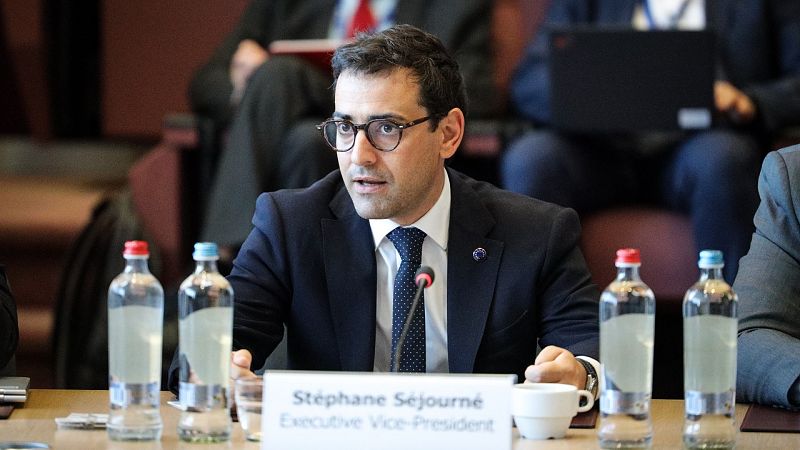
The European Commission has formally withdrawn proposals for an AI Liability Directive and a Regulation on Standard Essential Patents (SEP), despite some resistance from lawmakers and member states, a spokesperson for the institution confirmed to Euronews.
In its work program published last February, the Commission announced its plans to withdraw the two files because it saw “no foreseeable agreement” being reached. Some MEPs and member states resisted the move, but this now seems to have been ineffective. They had six months to oppose the decision.
The spokesperson said on Thursday that “having considered their views, the Commission has confirmed the withdrawal.”
The AI Liability rules were intended to offer consumers a harmonised means of redress when they experience harm arising from AI products or services. The rules were proposed in 2022, but no significant progress has been made since.
Some lawmakers pushed for its continuation, including Axel Voss (Germany/EPP), claiming that they wanted to address AI Liability as soon as the AI Act was signed off.
EU Tech Commissioner Henna Virkkunen said that the planned directive would have led member states to “apply the rules in different ways”.
“We continue to listen to interested stakeholders, as we remain committed to having a balanced and fair regulatory environment of AI in the EU. We will be drawing lessons from the negotiations of the previous proposals," the spokesperson said.
Standard essential patents - key to tech products
The proposal on patents was further on in the decision-making process at the time when it was withdrawn.
In April 2023, the Commission published its plan for a regulation on SEPs, which are patents that protect the technology deemed essential in a technical standard or specification, used in the automotive, smart energy, and payment industry.
The rules were agreed by the Parliament in February 2024, before the Commission signalled this year it intended to withdraw the proposal, surprising many. Industry Commissioner Stéphane Séjourné told Parliament in April that the Commission withdrew the file with the hope to get a broader agreement.
The Commission now says that “neither the Parliament nor the Council adopted a clear signal of support for the SEP Proposal.” Adding, that if “circumstances change” the Commission will revisit its policy stance, and “consider an adequate policy response. In the meantime, the Commission will continue to monitor market and international developments aimed at overcoming SEP licensing frictions.
Simplification
Scrapping these files fits into the simplification agenda of this Commission. Commissioner Virkkunen previously announced carrying out a digital fitness check, which will result in an “omnibus” simplification package set to be presented on 10 December. The EU executive aims to identify reporting obligations in existing digital legislation that can be cut to ease pressure on enterprises, particularly SMEs.
Lawmaker Tiemo Wölken (Germany/S&D) said earlier this month that he will sue the Commission for lack of transparency regarding the two legislative files.
Wölken said that the withdrawal came after Commission President Ursula von der Leyen and US Vice President JD Vance met at the AI Summit in Paris. Requests to get access to Commission documents regarding this process were not answered. He filed a lawsuit with the General Court of the European Court of Justice.
“My access to documents requests were primarily an opportunity for the Commission to clear up such rumours. But instead, they decided to delay my requests, which is why I now ultimately have no choice but to take legal action to bring clarity and to obtain the documents concerned,” Wölken said.







